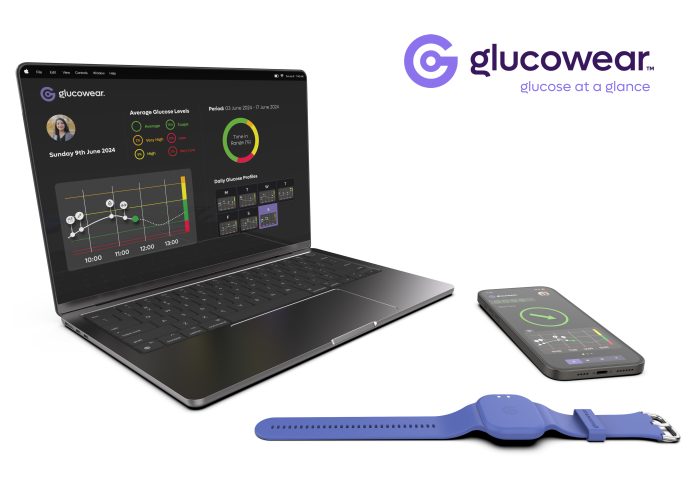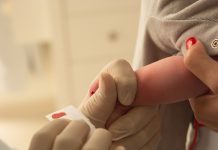Sabih Chaudhry, CEO of Afon Technology Ltd, describes the company’s innovative Glucowear™ — the world’s first non-invasive, real-time, and continuous blood glucose sensor
In the past decade, remarkable advancements have transformed diabetes from a potentially fatal condition into a manageable one, enabling individuals to lead normal, active, and healthy lives. The world of diabetes technology has played a pivotal role in extending lives across the globe, and the future of diabetes technologies continues to shine brightly with optimism. (1)
Standing at the forefront of innovation, Afon Technology, a leading name in cutting-edge medical technology, is poised to revolutionise the lives of those living with diabetes with the development of Glucowear™ — the world’s first non-invasive, real-time, and continuous blood glucose sensor.
Next steps for continuous glucose monitoring
Glucowear™ is set to redefine continuous glucose monitors as we know them. It’s a non-invasive continuous glucose monitoring (CGM) system, liberating people with diabetes from the constraints of traditional finger pricking and subcutaneous sensor needles. (2) Designed to be comfortably worn as a watchstrap, it connects seamlessly via Bluetooth to the user’s smart device, granting them instant access to real-time data and simplifying diabetes management like never before.(3)</sup;>
Research published in the Diabetes Technology & Therapeutics journal affirms that CGMs have proven ‘clinically valuable’ by reducing the risks of hypoglycaemia and hyperglycaemia, minimising glycaemic variability (GV), and enhancing the quality of life for a diverse range of patient groups and clinical applications. (4)
The role of data
Data around healthcare has grown rapidly, and the amount of information being generated by devices such as wearable technologies could help shape the future management of chronic conditions such as diabetes. (5) Big Data refers to large datasets that are too complex or large to be evaluated using traditional analytical methods. Machine Learning – a division of Artificial Intelligence – can be used to analyse Big Data, helping to identify patterns and build predictive models. (6)
In healthcare, the findings can help diagnose and predict disease progression. In the face of staff shortages, growing patient numbers, and more complex care needs, new technologies and AI can help people receive the best care customised to them. New technologies also encourage self-management. For people with diabetes, Big Data can help by analysing lifestyle patterns alongside medical history to provide a personalised management plan.
CGM is one aspect of diabetes care that generates large amounts of data.(7) Wearable CGMs help people monitor and manage their condition because they can access essential information quickly. By measuring blood glucose continuously, people will have the opportunity to act if levels go too high or too low. (8)
Glucowear uses low-power RF/ microwave technology to track and record changes in blood glucose levels in real time. The sensor feeds back to a companion app on a smart device to communicate blood glucose readings immediately, while the needle-free technology removes the need for daily finger-pricking. With the companion app, users will be able to set alerts, monitor short and long-term records and share data. The data it gathers can also be accessed by the user’s doctor or healthcare professional, which offers the opportunity for them to make recommendations about insulin doses and times.
The power of smart watches
Recent developments in smartwatches have transformed them from mere timekeeping devices into powerful health monitors. They save lives and alert wearers to serious health conditions before they become life-threatening. From detecting heart irregularities to monitoring blood oxygen levels and identifying sleep disorders, these devices have become more than just accessories—they are lifelines.
In the fast-evolving landscape of health tech, Afon Technology stands out as a beacon of innovation, ushering in a new era in personalised diabetes management. In developing the world’s first non-invasive solution for individuals with diabetes and as smartwatches continue to evolve into essential health companions, Afon Technology remains committed to pushing boundaries and creating innovations that save lives and enhance the wellbeing of users worldwide.
Blood sugar awareness
In the realm of global health challenges, diabetes has long held a prominent position, with its prevalence steadily escalating. Type 2 diabetes, accounting for a staggering 90% of diabetes cases, has become a focal point, constituting a substantial burden on individuals and healthcare systems alike. The complications arising from uncontrolled blood sugar levels are severe, ranging from life-limiting conditions to potentially fatal outcomes, underscoring the urgency of effective management strategies.
While type 1 diabetes remains incurable, advancements in clinical care, medical technology, and lifestyle modifications have enabled effective management. On the other hand, type 2 diabetes, primarily rooted in insulin insensitivity due to genetic and lifestyle factors, offers opportunities for proactive intervention. Managing type 2 diabetes involves a combination of lifestyle adjustments, medications, and, crucially, blood sugar monitoring.
According to Diabetes UK, 2.4 million people in the UK are at risk of type 2 diabetes, contributing significantly to the NHS’s annual spending of around 10% of its budget on diabetes-related care. The proactive approach advocated by healthcare experts emphasises the importance of prevention over cure—a mantra that aligns with the essence of Afon Technology’s Glucowear.
CGMs have emerged as powerful tools for individuals to monitor their blood sugar levels in real time. Afon Technology believes that CGMs, particularly the revolutionary Glucowear™, can empower those with diabetes to make informed choices.
The future of CGM devices
New CGM devices have recently come on the market that are minimally invasive but nonetheless still invasive. Afon Technology is currently putting its non-invasive blood glucose sensor through rigorous testing and trials and plans to start selling the device in the UK in the near future.
Companies such as Apple, Samsung, and Google are rumoured to have been trying to develop non-invasive blood glucose monitoring, but so far, none have been successful. Afon Technology hopes to win the race to this important milestone.
References
- https://afontechnology.com/2023/07/07/a-brief-history-of-diabetes-technology/
- https://afontechnology.com/glucowear/
- https://www.diabetes.org.uk/guide-to-diabetes
- Rodbard D. Continuous Glucose Monitoring: A Review of Recent Studies Demonstrating Improved Glycemic Outcomes. Diabetes Technol Ther. 2017 Jun;19(S3):S25-S37. doi: https://doi.org/10.1089/dia.2017.0035. PMID: 28585879; PMCID: PMC5467105.
- Mattison G, Canfell O, Forrester D, Dobbins C, Smith D, Töyräs J, Sullivan C. The Influence of Wearables on Health Care Outcomes in Chronic Disease: Systematic Review. J Med Internet Res. 2022 Jul 1;24(7):e36690. doi: 10.2196/36690. PMID: 35776492; PMCID: PMC9288104.
- Begg, A. (2022), Diabetes care: is big data the future? Pract Diab, 39: 7-9. https://doi.org/10.1002/pdi.2391
- Rumbold JMM, O’Kane M, Philip N, Pierscionek BK. Big Data and diabetes: the applications of Big Data for diabetes care now and in the future. Diabet Med. 2020 Feb;37(2):187-193. doi: 10.1111/dme.14044. Epub 2019 Jul 1. PMID: 31148227.
- https://www.niddk.nih.gov/health-information/diabetes/overview/managing-diabetes/continuous-glucose-monitoring

This work is licensed under Creative Commons Attribution-NonCommercial-NoDerivatives 4.0 International.








